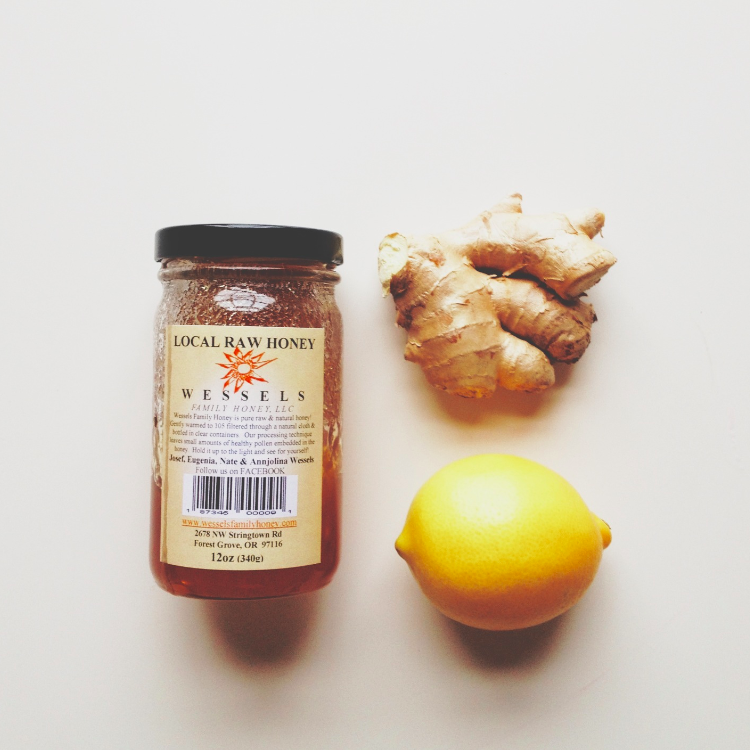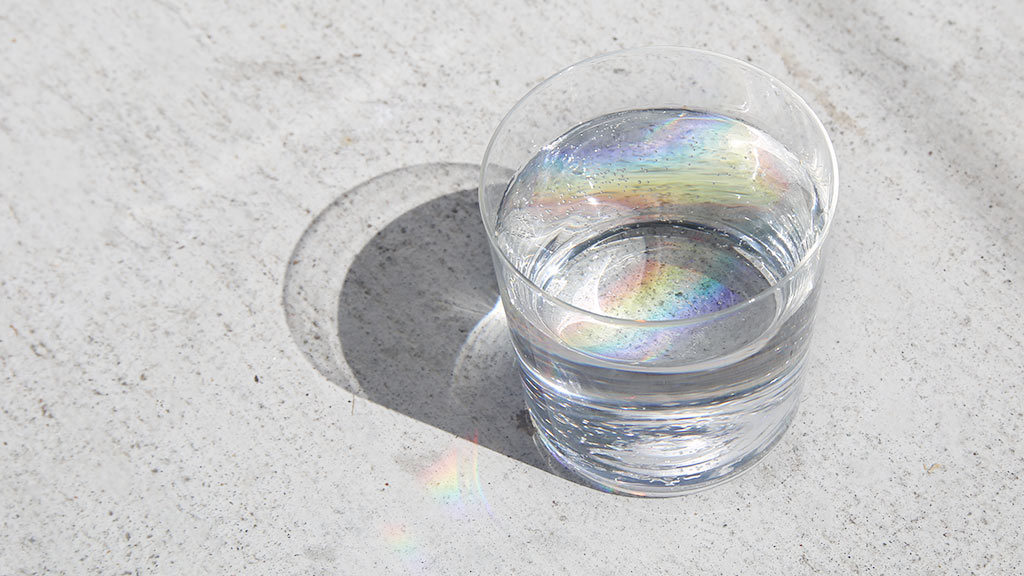Nourish
Sadie and Andrea Weigh In: Beating the Flu
It’s that time of year and so many of us are worn down by cold and flu season. Here’s my favorite remedy, plus lots of helpful answers from our functional nutritionist Andrea Nakayama.
barre3 Flu Elixir
INGREDIENTS:
Finely chopped ginger (size of your thumb)
1 fresh squeezed lemon
1 teaspoon raw honey or three drops of vanilla stevia (adjust to your taste)
optional shake of cayenne
16 ounces hot water
PREPARATION:
Steep for 5 minutes and enjoy.
———————————————
This week I’ve had everyone from my own mother to moms of little ones in my communities at school and online contacting me to ask: what do I do for the flu? Here are some of the questions I hear most often and my recommendations for staying strong and healthy.
Q: What are the best cold and flu remedies?
A: It’s important to remember that supporting your immune system is something you can do every single day. Your immune system is your protective barrier, guarding you against all the threats that your body may encounter like stress, toxins, trauma of any sort and certainly inadequate nutrition.
When the cold or flu has caught us, it’s usually an indicator that we’ve reached a tipping
point and that the immune system was just too exhausted to activate the response needed to address the menacing virus or bacteria.
The best cold and flu remedy is making sure that your diet is rich in a rainbow of colorful plant foods that will provide you and your immune system with the vitamins, minerals and nutrients that bolster its activity.
Q: Why are hot drinks beneficial and what type should you make?
A: There are a number of reasons to increase your intake of hot beverages when sickness takes hold. One is to reverse the effects of dehydration, a common side-effect of coughs, sore throats and fever. Hot liquids also help loosen secretions in the chest and sinuses, making them easier to expel. Goodbye congestion!
I’m a fan of the lemon, ginger and raw honey remedy, like Sadie’s example above. The lemon is loaded with vitamin C and immune boosting phytochemicals. Ginger and honey are also each immune power-boosters, and the ginger helps to bring down the internal inflammation within the nasal passages. A pinch of cayenne also helps to relieve a fever. The cayenne will lower your body temperature by stimulating sweat glands and activating the body’s internal fan.
Q: Is drinking other fluids helpful? What types would you recommend?
A: Stay away from the store-bought juices if you can. These are high in sugars (albeit natural sugar), which promote inflammation and don’t ultimately support the immune system. If you are squeezing your own orange juice and drinking it fresh, that’s a different story.
Tea with raw honey and broths of any sort are always helpful. One of my favorite remedies is miso soup. You can make this in a mug and sip it through the day just as you would tea, and you’ll also be fortifying your body with a bit of protein and some of the good bacteria from the fermented soybean paste. Good bacteria helps your body to overcome the bad bacteria!
Q: What about chicken soup–is there any benefit to that?
A: Indeed there are great benefits to getting that chicken soup simmering when the cold or flu season hits. There have actually been some studies to support the chicken soup for the immune-soul theories. Research from the University of Nebraska exposed neutrophils, the white blood cells that fight infections but can also increase inflammation, to a chicken broth. The liquid proved to slow the the cell activity. The idea is that the chicken soup can do the same thing within the body, helping to relieve symptoms associated with a cold and flu that are activated by that white blood cell activity.If you prefer a fish or vegetable broth, the results are much the same. Chicken soup is just the all-time favorite.
Q: Is oil of oregano beneficial? How does it work? And where can you buy it–is it hard to find?
A: Oil of oregano is a potent antibacterial agent. It contains myriad natural chemicals that lend to its power, including phenols and esters which contain antiseptic, antioxidant and anti-fungal properties.
Oregano oil can be found in the supplement section of your health food store. It’s not the easiest thing to take because of its strong flavor. If you’re brave and ready to kick that cold or flu out of your system, you can take one to three drops of the oil on your tongue two to three times a day. If you’re timid or working with a child, I recommend placing a few drops on the soles of the feet at bedtime.
Oregano oil should be used as a short-term remedy, unless advised otherwise by your holistic healthcare practitioner.
Q: Are mushrooms beneficial for cold and flu prevention? Can they be used as a remedy as well? Any other foods that are particularly helpful?
A: I love medicinal mushrooms for elevating the flu-fighting agents in the immune system. The best ones to get your hands on are shiitake and maitake. If you can find them, go ahead and slice them up and get them right into your soup!
When thinking about other foods to include in your arsenal, consider:
* berries for their antioxidant potential
* onions and garlic for their abilities to help detoxify your system of foreign bacteria
* broccoli and leafy greens for their phytochemical and vitamin C content
* raw honey for its antiseptic and antibacterial properties
Q: What do you think about Neti Pots for nasal irrigation?
A: Neti Pots are a brilliant addition to your flu fighting regime. Regular use keeps the upper respiratory tract clean and clear. All the congested mucous that collects in the nasal passages can be flushed right away. That mucous naturally builds up over time in the sinuses but accumulates even more so when we’re fighting a cold or flu.
Q: Is zinc a good thing to take?
A: The body’s demand for zinc increases when the immune system is compromised. Zinc helps the immune cells found in the bone marrow and thymus gland to produce new cells.
When managing a cold or flu, you can take in about 60 mg of zinc. It’s ideal to take it in the morning on an empty stomach, though that can cause some people digestive discomfort. This is one good reason to return to our food sources whenever possible. My favorite way of increasing my zinc intake is through the consumption of seeds like sesame and pumpkin seeds.
Q: What are the best vitamins to take when you’re sick and how do they work? What’s the best way to get them?
A: I’m a fan of ‘food as medicine’. My best prescription for fighting a cold or flu is with the yummy options I’ve mentioned – chicken and/or miso soup loaded with vegetables and medicinal mushrooms, fresh fruit smoothies ripe with berries and snacks of zinc-rich seeds.
Lifestyle practices like using a neti pot, doing a facial steam with an astringent oil like eucalyptus, taking warm baths with up to two cups of Epsom Salt and getting plenty of rest should all do the trick.
My biggest immune boosting recommendation is to support the health of your gut. The gut, or small intestine, houses 70% of your immune system. The potential for it to come to your aid is highly helped or hindered by its integrity and the food you eat on a daily basis. Taking a good daily probiotic is one of the very best ways to ensure that you are continually supporting your immune health.
It’s that time of year and so many of us are worn down by cold and flu season. Here’s my favorite remedy, plus lots of helpful answers from our functional nutritionist Andrea Nakayama.
barre3 Flu Elixir
INGREDIENTS:
Finely chopped ginger (size of your thumb)
1 fresh squeezed lemon
1 teaspoon raw honey or three drops of vanilla stevia (adjust to your taste)
optional shake of cayenne
16 ounces hot water
PREPARATION:
Steep for 5 minutes and enjoy.
———————————————
This week I’ve had everyone from my own mother to moms of little ones in my communities at school and online contacting me to ask: what do I do for the flu? Here are some of the questions I hear most often and my recommendations for staying strong and healthy.
Q: What are the best cold and flu remedies?
A: It’s important to remember that supporting your immune system is something you can do every single day. Your immune system is your protective barrier, guarding you against all the threats that your body may encounter like stress, toxins, trauma of any sort and certainly inadequate nutrition.
When the cold or flu has caught us, it’s usually an indicator that we’ve reached a tipping
point and that the immune system was just too exhausted to activate the response needed to address the menacing virus or bacteria.
The best cold and flu remedy is making sure that your diet is rich in a rainbow of colorful plant foods that will provide you and your immune system with the vitamins, minerals and nutrients that bolster its activity.
Q: Why are hot drinks beneficial and what type should you make?
A: There are a number of reasons to increase your intake of hot beverages when sickness takes hold. One is to reverse the effects of dehydration, a common side-effect of coughs, sore throats and fever. Hot liquids also help loosen secretions in the chest and sinuses, making them easier to expel. Goodbye congestion!
I’m a fan of the lemon, ginger and raw honey remedy, like Sadie’s example above. The lemon is loaded with vitamin C and immune boosting phytochemicals. Ginger and honey are also each immune power-boosters, and the ginger helps to bring down the internal inflammation within the nasal passages. A pinch of cayenne also helps to relieve a fever. The cayenne will lower your body temperature by stimulating sweat glands and activating the body’s internal fan.
Q: Is drinking other fluids helpful? What types would you recommend?
A: Stay away from the store-bought juices if you can. These are high in sugars (albeit natural sugar), which promote inflammation and don’t ultimately support the immune system. If you are squeezing your own orange juice and drinking it fresh, that’s a different story.
Tea with raw honey and broths of any sort are always helpful. One of my favorite remedies is miso soup. You can make this in a mug and sip it through the day just as you would tea, and you’ll also be fortifying your body with a bit of protein and some of the good bacteria from the fermented soybean paste. Good bacteria helps your body to overcome the bad bacteria!
Q: What about chicken soup–is there any benefit to that?
A: Indeed there are great benefits to getting that chicken soup simmering when the cold or flu season hits. There have actually been some studies to support the chicken soup for the immune-soul theories. Research from the University of Nebraska exposed neutrophils, the white blood cells that fight infections but can also increase inflammation, to a chicken broth. The liquid proved to slow the the cell activity. The idea is that the chicken soup can do the same thing within the body, helping to relieve symptoms associated with a cold and flu that are activated by that white blood cell activity.If you prefer a fish or vegetable broth, the results are much the same. Chicken soup is just the all-time favorite.
Q: Is oil of oregano beneficial? How does it work? And where can you buy it–is it hard to find?
A: Oil of oregano is a potent antibacterial agent. It contains myriad natural chemicals that lend to its power, including phenols and esters which contain antiseptic, antioxidant and anti-fungal properties.
Oregano oil can be found in the supplement section of your health food store. It’s not the easiest thing to take because of its strong flavor. If you’re brave and ready to kick that cold or flu out of your system, you can take one to three drops of the oil on your tongue two to three times a day. If you’re timid or working with a child, I recommend placing a few drops on the soles of the feet at bedtime.
Oregano oil should be used as a short-term remedy, unless advised otherwise by your holistic healthcare practitioner.
Q: Are mushrooms beneficial for cold and flu prevention? Can they be used as a remedy as well? Any other foods that are particularly helpful?
A: I love medicinal mushrooms for elevating the flu-fighting agents in the immune system. The best ones to get your hands on are shiitake and maitake. If you can find them, go ahead and slice them up and get them right into your soup!
When thinking about other foods to include in your arsenal, consider:
* berries for their antioxidant potential
* onions and garlic for their abilities to help detoxify your system of foreign bacteria
* broccoli and leafy greens for their phytochemical and vitamin C content
* raw honey for its antiseptic and antibacterial properties
Q: What do you think about Neti Pots for nasal irrigation?
A: Neti Pots are a brilliant addition to your flu fighting regime. Regular use keeps the upper respiratory tract clean and clear. All the congested mucous that collects in the nasal passages can be flushed right away. That mucous naturally builds up over time in the sinuses but accumulates even more so when we’re fighting a cold or flu.
Q: Is zinc a good thing to take?
A: The body’s demand for zinc increases when the immune system is compromised. Zinc helps the immune cells found in the bone marrow and thymus gland to produce new cells.
When managing a cold or flu, you can take in about 60 mg of zinc. It’s ideal to take it in the morning on an empty stomach, though that can cause some people digestive discomfort. This is one good reason to return to our food sources whenever possible. My favorite way of increasing my zinc intake is through the consumption of seeds like sesame and pumpkin seeds.
Q: What are the best vitamins to take when you’re sick and how do they work? What’s the best way to get them?
A: I’m a fan of ‘food as medicine’. My best prescription for fighting a cold or flu is with the yummy options I’ve mentioned – chicken and/or miso soup loaded with vegetables and medicinal mushrooms, fresh fruit smoothies ripe with berries and snacks of zinc-rich seeds.
Lifestyle practices like using a neti pot, doing a facial steam with an astringent oil like eucalyptus, taking warm baths with up to two cups of Epsom Salt and getting plenty of rest should all do the trick.
My biggest immune boosting recommendation is to support the health of your gut. The gut, or small intestine, houses 70% of your immune system. The potential for it to come to your aid is highly helped or hindered by its integrity and the food you eat on a daily basis. Taking a good daily probiotic is one of the very best ways to ensure that you are continually supporting your immune health.











4 people have left a comment. Join the conversation!
View Comments